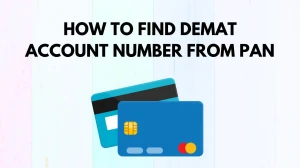
What Are Junk Fees? How to Avoid Paying Junk Fees?
Have you ever been surprised by extra charges when making a purchase or using a service? These sneaky fees, known as "junk fees,"are like hidden surprises in your bills.
Updated Sep 14, 2023
On This Page
What Are Junk Fees?
Junk fees in the USA refer to hidden and unexpected charges that are not initially disclosed or included in the stated price of a transaction but are added on when making a payment. These fees can encompass a wide range of charges that consumers may not anticipate or that are not adequately explained by the financial institution or service provider imposing them. They are often tacked on top of the upfront price, making it challenging to make accurate cost comparisons.
Let's say you're excited to buy tickets for a concert or event, and the ticket price is advertised as $50 per ticket. However, as you proceed to purchase the tickets online, you're hit with unexpected junk fees. These fees might include a "convenience fee," a "service fee," and a "processing fee," all of which add up to an additional $20 per ticket. So, what seemed like a $50 ticket ends up costing you $70 per ticket due to these hidden fees, making your overall expenses much higher than you initially anticipated.
Different Types of Junk Fees
Here are various types of junk fees that consumers may encounter:
Overdraft or Insufficient Funds Fees: These are charges imposed by banks when you spend more money than you have in your account, often at a high cost.
Late Payment Fees: Companies may charge late fees if you fail to pay bills or invoices on time, which can add up quickly.
Convenience Fees: These fees are often applied for using non-standard payment methods, such as paying with a credit card over the phone or online.
Closing Costs and Homebuying Fees: When purchasing a home, there can be hidden costs associated with the closing process, such as appraisal fees, title insurance, and legal fees.
Service Charges for Event Tickets: Ticket prices for concerts, sports events, or shows may come with extra service charges that aren't initially included in the advertised price.
Airline Family Seating Fees: Airlines may charge extra fees to seat family members together, increasing the overall cost of air travel.
Termination Fees for Services: Cancelling service contracts for internet, phone, or other subscriptions prematurely can result in hefty termination fees.
Application Fees for Rentals: When applying for rental housing, you may encounter application fees that cover background checks, adding to the overall cost of finding a place to live.
Administrative Fees: These fees often protect landlords between the time you commit to renting and your actual move-in date, sometimes going toward your first month's rent.
Move-In Fees: When moving into a new place, you might face fees for deep-cleaning or other preparations for your arrival.
Restocking Fees: Some stores, especially online retailers, charge restocking fees when returning merchandise, reducing the refund amount.
Late Fees on Credit Cards: While late fees on credit cards are legitimate, they can be excessive, leading to substantial additional costs for consumers.
How Much Can Junk Fees Cost?
The cost of these fees can vary widely, depending on the type of fee and the specific situation. Here are some examples of how much these fees can cost:
Overdraft and Non Sufficient Funds Fees: These fees typically range from $30 to $35 per occurrence. So, if you overdraw your account multiple times, it can add up quickly.
Foreign Transaction Fees: These fees, charged when you use your credit card for purchases abroad, usually amount to 1% to 3% of the total purchase amount. The more you spend overseas, the higher these fees can become.
Credit Card Late Fees: Late fees for credit cards can be as high as $41 for each missed payment. If you're consistently late, these fees can significantly impact your credit card balance.
Mortgage Closing Costs: The average closing costs for a single-family home in 2021, including taxes, were approximately $6,905. However, these costs can vary widely based on factors like location and the specific mortgage terms.
How to Avoid Paying Junk Fees?
Avoiding junk fees requires some careful consideration and shopping savvy. Here are steps to help you avoid paying unnecessary fees:
Understand the Fee Structure: Always take the time to understand the fee structure of any product or service you are considering. Look for information on fees in the terms and conditions or fine print.
Comparison Shopping: Compare different products or services to find ones that have transparent fee structures and lower fees. Be cautious of offers that seem too good to be true, as hidden fees may lurk behind them.
Check for Red Flags: Some products may appear free but have hidden fees. Look out for signs like vague fee descriptions or a lack of clear information on potential charges.
Bank Account Research: When considering a bank account, pay attention to specific fees like overdraft fees, maintenance fees, bounced check fees, and requirements to avoid them. Understand how many times overdraft fees can be charged in a day and the balance threshold that triggers them.
High-Yield Savings Accounts: If you're interested in high-yield savings accounts, make sure you know the requirements to earn the highest interest rate. Additionally, prioritize avoiding fees over chasing high interest rates, as fees can quickly erode your earnings.
Fee-Free Options: Look for products or services with no or minimal fees. For example, consider using a savings account like Marcus, which doesn't have monthly maintenance fees and doesn't allow overdrafts.
Challenge Unjust Fees: If you encounter unexpected fees, don't hesitate to challenge them. Contact the provider, explain your concern, and inquire about options to have the fee waived or reduced.
What Fees Are Charged To Process A Mortgage?
When you're processing a mortgage, several fees may be charged. These fees can vary depending on the lender and the specific details of your mortgage, but here are some common fees you might encounter:
Application Fee: This is the fee you pay when you apply for the mortgage. It covers the initial cost of processing your application.
Appraisal Fee: Lenders often require an appraisal of the property to determine its value. You'll typically pay this fee to the appraiser.
Credit Report Fee: Lenders check your credit history, and there may be a fee associated with obtaining your credit report.
Origination Fee: Sometimes called an underwriting fee, this covers the cost of processing and underwriting your loan.
Document Preparation Fee: In a mortgage, it is a charge by some lenders for handling the paperwork in the mortgage application and closing process.
Loan Processing Fee: This fee is charged for the administrative work involved in processing your loan application.
Title Search and Title Insurance: These fees cover the cost of researching the property's title history and providing insurance to protect against title issues.
Recording Fees: When the mortgage documents are filed with the county or local government, there may be recording fees.
Junk Fees Mortgage
Junk mortgage fees are hidden and excessive charges within a mortgage agreement that can inflate its overall cost. These fees may include charges for services you thought were already covered, surprise fees with high amounts, and fees with unclear descriptions. To avoid them, carefully review your mortgage agreement and seek clarification from your lender to ensure you're not overpaying for your mortgage.
What Are Junk Fees - FAQs
1. What are junk fees?
Junk fees are hidden and often excessive charges added to various transactions or services.
2. Why are junk fees problematic?
Junk fees can inflate the overall cost of a product or service and are often not transparent to consumers.
3. How can I identify junk fees?
Look for unexpected or unclear charges within a transaction and seek clarification from the provider.
4. Are junk fees legal?
While some fees may be legitimate, excessive or undisclosed fees may be subject to consumer protection laws.
5. How can I avoid paying junk fees?
Carefully review agreements, compare options, and ask for fee explanations to ensure you're not overpaying.




